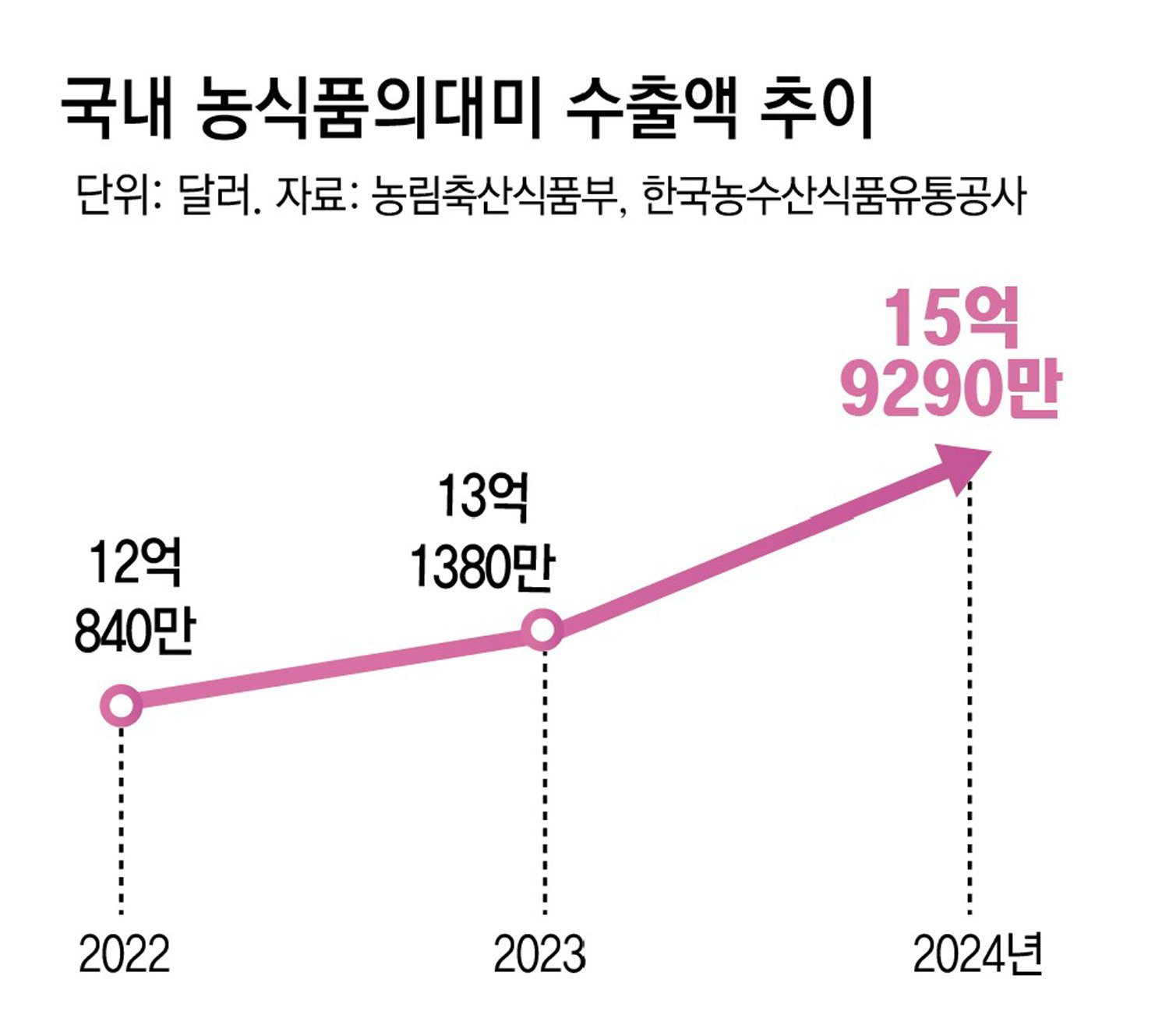Lotte's 'K-Burger' featuring Bulgogi-Bibimbap debuts in the US 46 years after first store in Korea
Kimchi-Gochujang salad also lands in the US
Tous Les Jours to add 20 more US stores this year
Domestic food companies in South Korea are reinterpreting Western foods in the 'K-food' style and entering the U.S. market. Amidst a stagnant domestic market and the popularity of K-content, the U.S. has emerged as the largest export market for K-food, leading to an expansion of South Korean food companies' presence in the U.S.
The local burger brand 'Lotteria' opened its first store in Fullerton City, Orange County, California, on the 15th (local time), with a space of 215㎡ (approximately 65 pyeong). This marks its entry into the U.S. market 46 years after launching the first hamburger franchise in South Korea in 1979 in Sogong-dong, Jung-gu, Seoul. The U.S. is considered the home of hamburgers, with global burger franchises such as McDonald's, Burger King, In-N-Out, and Shake Shack headquartered there.

Lotteria's strategy for targeting the U.S. market is the Koreanization of burgers. The store offers the 'Ria Bulgogi Burger', featuring bulgogi, a representative K-food ingredient, as well as the 'Ria Shrimp Burger' and 'Bulgogi Deluxe Burger'. Additionally, it introduces the 'Bibim Rice Burger', which embodies the taste of bibimbap in a burger. To cater to the demand for convenient meals, rice dishes topped with bulgogi and gangjeong chicken are also available. During a pre-opening event on the 14th, 200 people gathered an hour before opening to taste the K-style specialized burgers. A representative from Lotteria GRS stated, "We aim to differentiate with original K-burgers incorporating Korean cuisine to gauge local reactions and expand our U.S. presence."
Another domestic company has reinterpreted salads, popular among Americans, in a K-style for entry into the market. The domestic salad franchise brand 'Salady' opened its first store in Westminster, Colorado, in June, offering Korean-style salads. The signature menu item is the 'Bibim Grain Bowl', a salad mixed with vegetables, grains, seaweed, and bulgogi, served with gochujang bibim and ssamjang mayo sauces. Oh Se-deok, head of Salady's overseas business division, stated, "Reflecting the recent K-food craze, we introduced toppings and special sauces using unique Korean ingredients," and added, "We aim to establish ourselves as a health food brand with a Korean touch in the U.S., the home of salads."
In the bakery industry, 'Tous Les Jours', operated by CJ Foodville, entered the U.S. market early and has continued to differentiate itself with Korean-style menus. Since opening its first U.S. store in 2004, Tous Les Jours has offered bread incorporating Korean ingredients, such as 'Kimchi Croquette'. It currently operates over 170 stores in 28 states, including Los Angeles and New York. With the growing popularity of K-food, it has opened an additional 20 stores in the U.S. this year alone. Last year, the U.S. subsidiary's sales increased by 30% year-on-year to KRW 137.3 billion.
As the popularity of K-content rises, interest in K-food has also increased, making the U.S. the largest export market for South Korean agricultural and marine products last year. According to the Ministry of Agriculture, Food and Rural Affairs, South Korea's exports of agricultural, forestry, and livestock products to the U.S. amounted to USD 1.5929 billion last year, a 21.2% increase from the previous year's USD 1.3138 billion, surpassing Japan and China to take the top spot. Lee Jong-woo, a professor of business administration at Ajou University, stated, "The Korean Wave has not waned in recent years, and K-food mukbangs are spreading like challenges among U.S. influencers, gaining popularity," and predicted, "The expansion of South Korean food companies into the U.S. market, led by K-food, will continue to grow."
ⓒ dongA.com. All rights reserved. Reproduction, redistribution, or use for AI training prohibited.
Popular News